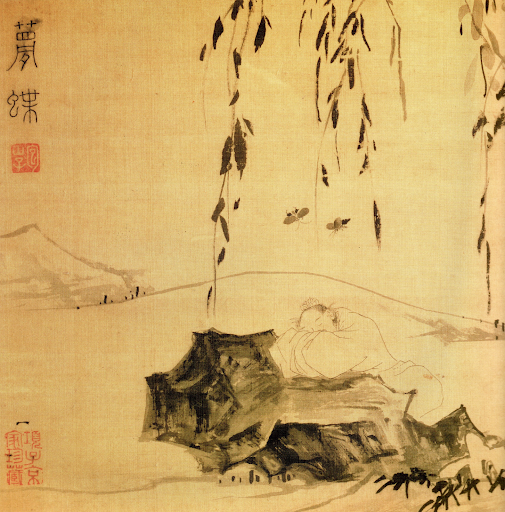In this episode of Elixir, Helen is talking to Amina Meshnuni about her own poem ‘Our Children’ written in Albanian and also about a poem by another Albanian poet, Mojkom Zeqo, called ‘The Mask of God’
Text of Amina Meshnuni’s poem:
Fëmijët
Në cilin varr masiv do të hidhen toksinat tona
Dikur menduam se mashtruam fatin,
Embrione të abortuara, në qeska të vogla
I hodhëm në gojën e bishës,
Le të hajë pjesë tonat qe të mos na vrasë ne
Që ne, të jetojmë dhe pak, sado pak
Kemi nevojë të rikrijojmë bukurinë që shkatërruam vetë
Kemi nevojë të rilindim femijët e palindur
Femijët e vrarë, fëmijët e rrënojave, femijët e dhomave bosh,
Fëmijët që i hodhën kazaneve të ologarkëve, demonëve, dhjetra zotave, vrasësve
Fëmijët që i hodhëm
Ne që të qeshurat tona shoshitëm si mbeturina dhe i kompresuam në lotë komercial
Kemi nevojë të rilindim fëmijë të zemëruar sa ne do na vrasin
dhe botën do rindërtojnë me sytë nga ku buron zjarrmia e luftës,
në kupolë të paqes, me duart e tyre pa jod e pa gjak,
me oshëtima të përflakta në vaj rikthimi
Më mirë kështu, më mirë të jemi ne kurbani i një jete të re
Po për dreq, edhe mitrat tona i paskemi hedhur në gojën e bishës
Londër 2023
Translation of the poem:
Our Children
In which mass grave will our toxins be thrown
Once we thought we cheated fate,
Aborted embryos, in small bags
We threw them into the beast’s mouth,
“Let it eat parts of us, so it won’t kill us,
so we can live a little longer, even if it’s just for a bit longer” - we used to say,
We need to recreate the beauty we ourselves destroyed
We need to rebirth the unborn children
The murdered children, the offspring of the ruins,
the children of hollow rooms,
The children we threw into the cauldrons of oligarchs, demons, dozens of gods, murderers
The children we threw away,
We who sifted our laughter like waste and compressed it into commercial tears
We need to rebirth children so enraged they will kill us and rebuild the world with eyes where with the fever of war springs, in a dome of peace, with their hands unsullied by iodine and blood, with burning roars in the cry of return
It is better this way, we better be the sacrifice for a new life,
But alas, we’ve even thrown our wombs into the mouth of the beast
London 2023
Amina’s own translation
Text of Mojkom Zeqo’s ‘The Mask of God’
Mojkom Zeqo
Maska e Zotit
Metropole të mëdha! Takikardi stuhie
Mbi labirinte rrugësh me ankthin e kohës.
Semaforët – perëndi budiste
Shkëlqejnë nga fosforeshenca e jogës.
Rrëmuja e bursës lëviz me vërtik,
Kriza surreale ngrin si në bronz
Robotët e telefonave automatikë
I gëlltisin monedhat, po s’i tresin dot.
I sfilitur në pritje të mijevjeçarit të ri
Planetin futurologjik e sodis
Me polipët e flokëve të mi
Thith muzgjet e amshuara të Babilonisë!
Horizonti I pestë, apokaliptik,
Zhurmëron me lemeri mes heshtjes.
Në tejqyrën që zbret nga një yll
I shoh përbindëshat brenda vetes.
Me ngulm kërkoj zjarr në acaret polare
E gjej Hiroshimën e pikës së lotit
Nën miniera vuan populli i djajve
Për floririn e maskës së Zotit!
Washington D.C. 1997
Translation of Mojkom Zeqo’s poem
Mojkom Zeqo
God’s Mask
Great metropolises!
Tachycardia of the storm
Above the labyrinth of streets with the anxiety of time.
Traffic lights – Buddhist gods
Shine with the phosphorescence of yoga.
The bustle of the stock exchange moves with a whirl,
The surreal crisis freezes as if in bronze
The robots of the automatic telephones
Swallow the coins, but can't digest them.
Exhausted in the wait for the new millennium
I gaze at the futurological planet
With the polyps of my hair
I inhale the eternal dusks of Babylon!
The fifth horizon, apocalyptic,
Roars with terror amidst the silence.
In the telescope descending from a star
I see the monsters within myself.
I relentlessly seek fire in the polar frosts
And find Hiroshima in the tear's drop
Beneath mines, the devil’s people suffer
For the gold of God's mask!
Translated by Amina Meshnuni
About the poet Mojkon Zeqo:
https://www.harvardreview.org/contributor/moikom-zeqo/
https://www.poetryinternational.com/en/poets-poems/poets/poet/102-30097_Zeqo
https://www.worldliteraturetoday.org/author/moikom-zeqo
https://sq.wikipedia.org/wiki/Moikom_Zeqo
https://www.harvardreview.org/contributor/moikom-zeqo/
About the poet Amina Meshnuni:
https://books.google.co.uk/books/about/Sy_që_nuk_vdesin.html?id=QaBBswEACAAJ&redir_esc=y
https://www.camdennewjournal.co.uk/article/dear-suella-try-living-for-a-week-in-rwandan-centre
https://www.facebook.com/media/set/?set=a.579662492185748&type=3&comment_id=579681728850491&paipv=0&eav=AfbbmhY-T-fQJwzCXfQD1l2JcE1iTxwwdpNMJMp9e1YTLHggdZ9IpjSlXnpXblf2kNg&_rdr
Support The Elixir Poetry Podcast, buy Helen a coffee



























